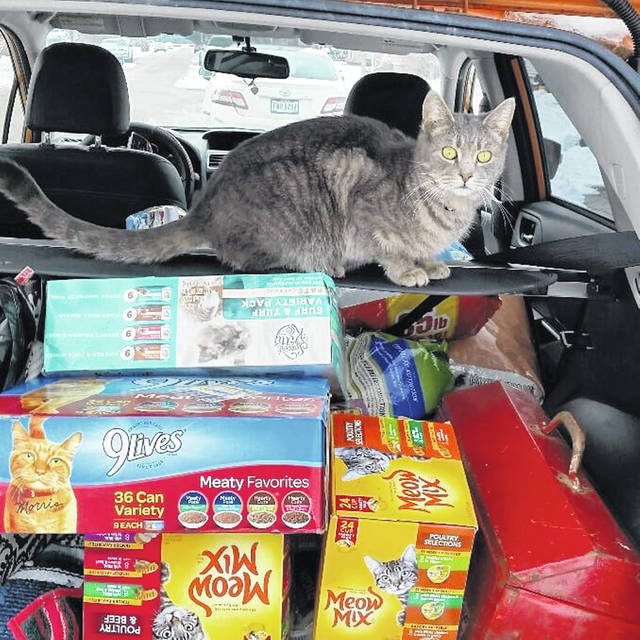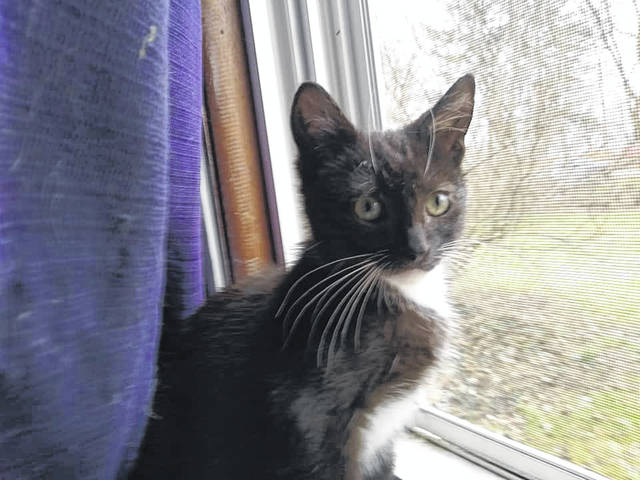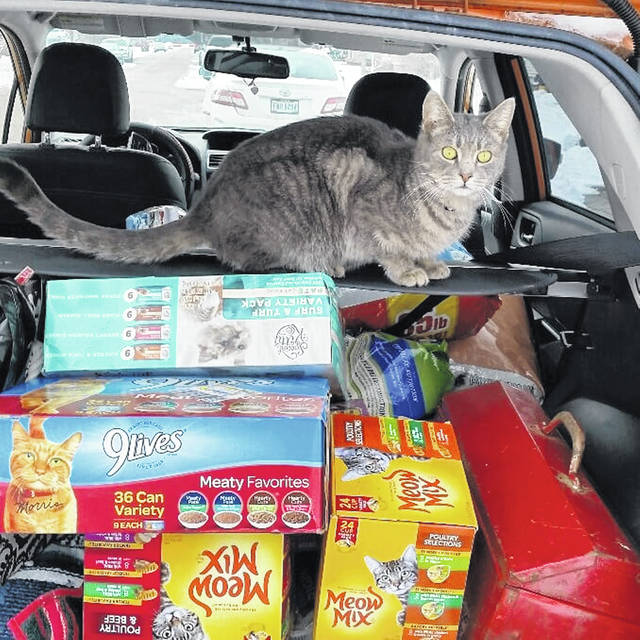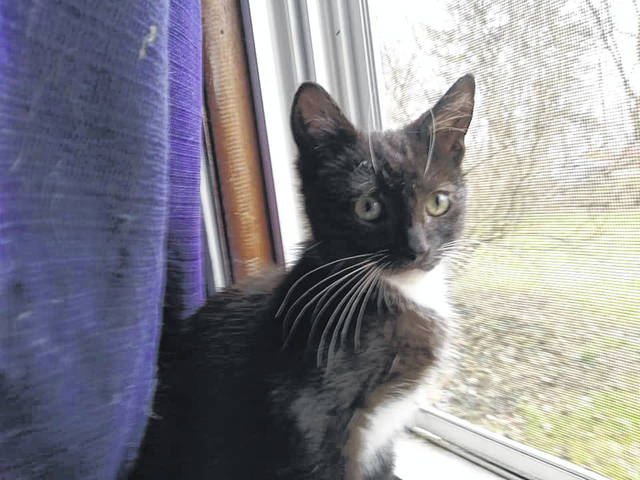



FAIRBORN — Since 2014, the Fairborn Trap, Neuter, Release program (TNR) has spayed and neutered more than 3000 cats. The cats, which live in feral colonies all across the city of Fairborn, need everything a house cat needs: food, water, shelter, and medical care. The TNR volunteers provide this for them, and during the past seven years, 300 of the little furballs have found permanent homes through the program.
Janet McKenzie started Fairborn TNR in 2014 after she discovered the City of Fairborn had hired a trapper to get rid of the cats around the city. Due to overpopulation, the cats were simply being euthanized.
Enlisting the help of the community, the public outcry was enough to get the city to call off the trapper. According to McKenzie, Fairborn has since “kept their word” not to kill any more cats as long as the Fairborn TNR program continues to operate.
As of late 2020, Fairborn has also offered funding through Greene Giving to help Fairborn TNR spay and neuter an estimated 30 cats a month via a mobile clinic.
With the city’s help, McKenzie esimates that they will be able to fix 40-50 cats monthly this coming season. And they’ve certainly got their work cut out for them.
Due to the coronavirus pandemic, the volunteers weren’t able to get cats spayed and neutered at all for over five months.
“Vets had to keep anesthetics for emergency surgeries only,” McKenzie said. “The governor ordered them to keep supplies in case they were needed for human hospitals.”
Veterinary anesthetists can use many of the drugs used in human anesthesia to anesthetize dogs, cats, and small pets, according to the National Library of Medicine.
As such, TNR got cut out from veterinary surgery slots in March, and didn’t fully resume fixing a full clinic of 30 cats until November. By then it was too cold.
“If they’re spayed in the winter, we have to keep them inside for two weeks because of the cold,” McKenzie said. “They can’t go out in the streets with their belly shaved. We would consider that animal cruelty.”
Once the cats are fixed, 90 percent are released back onto the streets. Cats are always checked for microchips and signs of ownership, and volunteers try to reach out to owners if they know where to find them. If a stray doesn’t have a family and isn’t feral, that cat can be put up for adoption.
Spring and summer is also peak season for kittens.
“If we can see that they’re pregnant, that means they’re too far along, and we will call rescues to have them give birth there,” Mckenzie said. “Those kittens are all spayed or neutered, given their shots, and put up for adoption. Every single one.”
“Mom is also put up for adoption, unless she’s feral, at which point she goes to a barn home away from the colony so she can live out the rest of their life safely,” she continued.
The program relies heavily on donations. Because TNR feeds more than 100 colony cats a day, on top of finding new home for cats and other responsibilities, all of its funding goes towards taking care of them.
“We run out of food and cleaning supplies, we have to buy traps, etc. Pretty much everything comes out of volunteers pockets,” she said.
To get a male cat neutered costs $30-$40. Females are $50-$70, with shots.
Fairborn TNR has six active volunteers, and “would love more,” Mckenzie said. They work year round and in multiple communities to help people take care of their animals. In 2019, after the tornadoes that heavily damaged the Miami Valley, they went to Beavercreek to deliver relief to animal owners there, with resources provided by national business.
“Things like that, the community really gathered around. Amazon delivered nonstop. We had pounds of food that went out, cases of food, litter. The Mayor of Beavercreek came out and asked us to come back next week,” McKenzie said.
Not only did they administer supplies, but they also offered to house the pets of those who lost their homes in the tornado.
“We helped 40 cats stay until their owners came back,” McKenzie said. “Every single one went back to their families.”
The volunteers work through Blue’s Mews, LiFeline Cat Rescue, Our Farm Sanctuary, and SISCA in Dayton to help cats and kittens find good homes. Fairborn TNR also allows families to adopt cats six months and older directly from the organization. Fairborn TNR currently has 40 cats that are waiting for a family to take them home.
For more information, visit www.facebook.com/FairbornT.N.R/.



